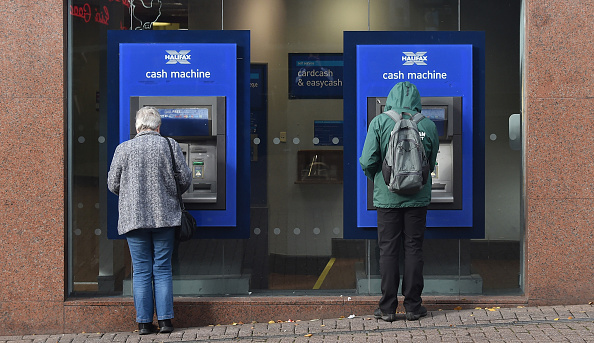Fear has pushed us back to cash as banks fail to help consumers control spending

We’ve come to believe we live in an almost completely cashless society today. In fact, withdrawing large amounts of cash from your bank is viewed with suspicion – victim of fraud or tax evasion? What other possible reason could you have for cash? Even Big Issue sellers now have Square readers to accommodate this shift.
But lately there’s been a fresh dash to cash, with the Post Office seeing £801m in withdrawals in July alone. That’s at its highest level for five years.
The reality is that cash is accountable. Consumers see and feel their spending. It’s more than just a number flying in and out of a bank account. They can physically put it in an envelope saying, “that’s for the electricity bill”, and know it’ll still be there when it comes time to pay.
In a cost-of-living crisis, consumers are looking to be more in control of their spending than ever before. The fact that they don’t feel they can rely on their banks to help them do that is concerning.
When it comes to money management, the traditional banks have dropped the ball. This is an ideal opportunity to get on the customer’s side and make a huge difference to how they navigate these choppy waters. But instead of tangible help, there is little more than the periodic reminder to pay off more than the minimum on a credit card to prevent interest accruing.
What does tangible help look like? Again, the digital challengers have been coming up with the answer. Starling Bank, for example, categorises spending insights, creates savings goals and helps customers split bills with friends and family. Its “Spaces” function helps customers split savings into buckets so they can see how close they are to getting the money together for a family holiday – or perhaps, more realistically, meeting the new fuel price cap. It’s nice to see Halifax introduce a cost-of-living page to help advise on debt and subscriptions – but is this not simply table stakes?
Digital insights and virtual envelopes are just some of the services banks should be offering. Then there are the active money management services. Revolut, for example, offers “Smart Subscriptions”, helping customers block and unblock unwanted subscriptions. That trial you signed up for that promised 30 days free? Gone on day 29, instead of tipping over into a monthly charge. One report puts the value of unwanted subscriptions at £1.8bn a year.
Despite the evidence of a return to notes and coins, we’re still moving towards a cashless society – and this will work in banks’ favour. Customers accustomed to making even the smallest purchases, a matter of a couple of pounds or less, now have the data trail to create a detailed breakdown of their spending.
For all the facile pronouncements that young people could afford a home deposit if only they didn’t buy avocados and an extra soy latte for the commute, knowing where your financial “leakage” is happening is a powerful tool. And yet one the major banks seem unwilling to provide.
Today’s economic climate is hugely distressing for households up and down the country. But it is also a moment of opportunity. Now is the time for banks to step in and demonstrate how they can build lasting, valuable relationships with their customers. Capability isn’t what’s holding them back – the data, the tech, the demand is all there. It’s the willingness that’s lacking. With challengers waiting in the wings and growing all the time, this is more than a missed opportunity. It could well be the tipping point.
